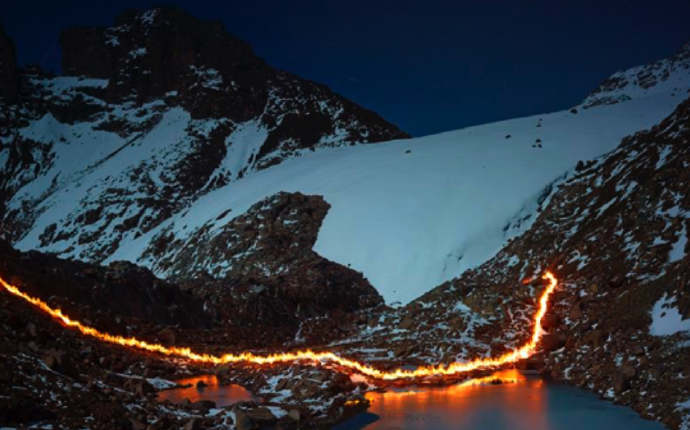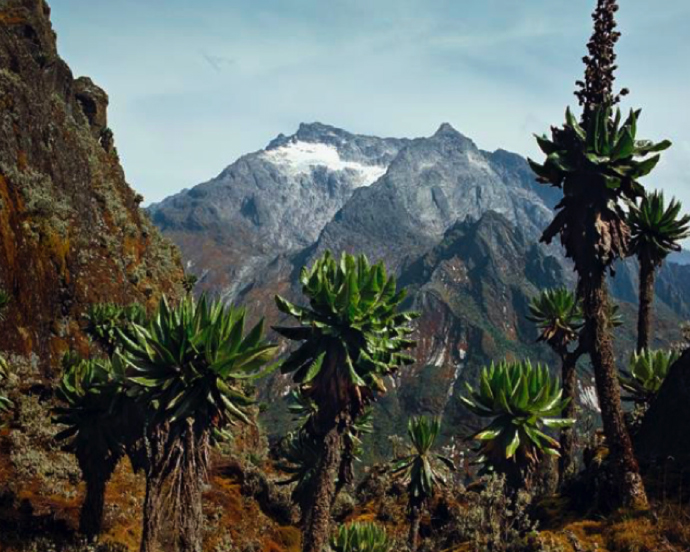Exhibition on the Theme
VANISHING GLACIERS


Resembling those in South America, the glaciers in Africa are altitude related. Since they occur in high mountains and are close to the equator, they are very sensitive to temperature changes and therefore to global warming. Some believe that Africa is likely to be the first continent to be glacier-free due to climate change.

Lewis Glacier, Kenya | Simon Norfolk (2014)
Mount Kenya used to host many glaciers. To show the glacier retreat visually, Simon Norfolk used a self-made fire torch and long-exposure photography to demarcate the line to which a glacier once extended.
Mount Kenya is an extinct 5,199-metre volcano, and this series intends to photographically reawaken the mountain’s magma heart. The ‘Fire versus Ice’ metaphor is poignant owing to the trail of light being made from petroleum—the only evidence in these images that the glacier’s retreat is believed to be due to man-made climate change.

Speke Glacier, Uganda | Klaus Thymann (2012)
On the border of Uganda and the Democratic Republic of Congo are the Rwenzori Mountains. This UNESCO-listed national park is home to six peaks above 4,600 metres, which are also known as ‘The Mountains of the Moon’. The mountains, which are the highest source of the Nile River, were barely explored until the turn of the 20th century. It is estimated that the glaciers will completely disappear within the next 15 years.
In 1906, there were 43 glaciers in the region; now only half remain and cover an area of less than one square kilometre. The mountains are also home to 177 species of birds and mammals and an abundance of unusual flora. The tropical rains, high altitude and untouched landscape create conditions that encourage unique species to thrive.
